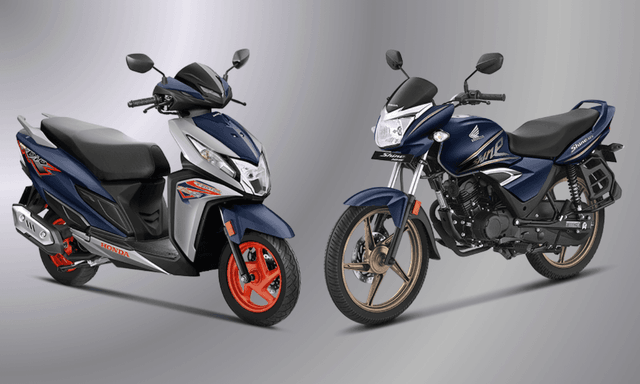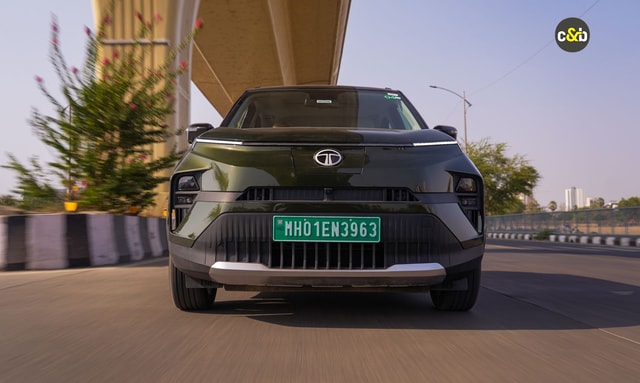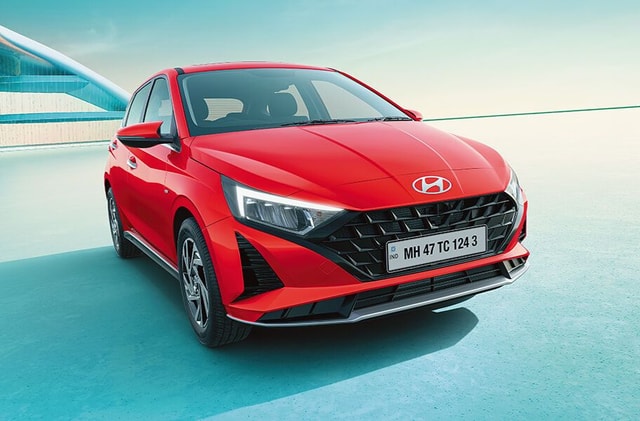Everything You Need to know about EV Charging Stations

Electric vehicles are extremely common around the world. People are shifting from traditional cars with petrol/diesel engines to electric vehicles. They are more efficient and way more environment-friendly than other vehicles. Electric vehicle charging stations are important for the charging of electric vehicles. Without proper charging, the vehicle won't be able to move. Before someone goes to a station, it would be beneficial to do proper research about it.

What is an EV charging station?
An EV charging station is also known as electric vehicle supply equipment (EVSE) or EV charger. This is equipment that charges it up when plugged into the electric vehicle just like any other electrical equipment.
EV stations are becoming extremely common in the world. 20,178 charging stations were installed in the US in 2017 already, and since then, the number has gone up. In India, the infrastructure is also being developed at a rapid pace.

Power generation
The major source of power for EV charging stations is solar panels. But many EVs use other renewable sources of energy to provide power. That includes hydro as well as wind power. The equipment is connected to a station as a grid, and power is distributed to all the ports.

Types of charging stations
There are majorly three types of charging stations that are in use around the world: -
- Level 1 EV charging station: A 120 V AC plug is utilized in Level 1 EV charging stations. However, a lot of effort goes into charging the car. Generally, people use this type since it's the most affordable and suitable for short-term charging purposes.
- Level 2 EV charging station: The private charging station uses 240 V, and the business charging station uses 208 V. These stations are extremely efficient and quick. The entire charging process takes only 2 hours. Business corporations prefer Level 2 stations.
- Level 3 EV charging station: DC charging station is known as the fast-charging station. 60-100 miles (96-160 kilometers) of reach is provided by DC charging stations that take only 20 minutes! This is specifically used for select vehicles only since EVs don't have the DC charging ability.

EV charger plug types

- Type 1 charger plug: It is a single-phase charger. It can charge up to 7.4 kW but is pretty rare to find in charging stations.
- Type 2 charger plug: This is a three-phase charger. Load rating for this type of plug can go up to 43 kW.
- Combination plug: This is an updated model of the type 2 charger plug. It supports both AC and DC currents.
- CHAdeMO plug: Developed in Japan, this is a fast-charging plug. The load rating is 50kW.
- Tesla Supercharger plug: This is a modified version of the Type 2 charger plug.

As the government is pushing for phasing out older vehicles with EVs, more charging stations will be constructed along with all the major road systems in the country.
Latest News
 Jaiveer Mehra | Feb 5, 2026Honda Dio 125 X-Edition, Shine 125 Limited Edition LaunchedBoth special editions get a variant-specific colour scheme and graphics.1 min read
Jaiveer Mehra | Feb 5, 2026Honda Dio 125 X-Edition, Shine 125 Limited Edition LaunchedBoth special editions get a variant-specific colour scheme and graphics.1 min read Seshan Vijayraghvan | Feb 5, 2026Tata Punch EV Facelift To Be Launched On February 20The electric version of Tata’s SUV-esque hatchback will be launched on February 20, 2026, and, like the petrol-powered version, it will receive a range of visual and feature upgrades.2 mins read
Seshan Vijayraghvan | Feb 5, 2026Tata Punch EV Facelift To Be Launched On February 20The electric version of Tata’s SUV-esque hatchback will be launched on February 20, 2026, and, like the petrol-powered version, it will receive a range of visual and feature upgrades.2 mins read Bilal Firfiray | Feb 5, 2026Hyundai i20 Line-Up Now Starts At Rs 5.99 LakhThree variants of the Hyundai i20 have received a price rejig – Era, Magna and Magna Executive.1 min read
Bilal Firfiray | Feb 5, 2026Hyundai i20 Line-Up Now Starts At Rs 5.99 LakhThree variants of the Hyundai i20 have received a price rejig – Era, Magna and Magna Executive.1 min read Jaiveer Mehra | Feb 5, 2026New Mercedes-Benz V-Class India Launch On March 3The V-class is set to return to the Indian market in Extra Long Wheelbase guise and is likely to be a CBU import.2 mins read
Jaiveer Mehra | Feb 5, 2026New Mercedes-Benz V-Class India Launch On March 3The V-class is set to return to the Indian market in Extra Long Wheelbase guise and is likely to be a CBU import.2 mins read Seshan Vijayraghvan | Feb 4, 2026Skoda Kylaq Crosses 50,000 Units Sales MilestoneThe Kylaq has been the brand’s best-selling car, which has led to Skoda Auto India’s best-ever sales performance in 2025.1 min read
Seshan Vijayraghvan | Feb 4, 2026Skoda Kylaq Crosses 50,000 Units Sales MilestoneThe Kylaq has been the brand’s best-selling car, which has led to Skoda Auto India’s best-ever sales performance in 2025.1 min read Seshan Vijayraghvan | Feb 4, 2026Volkswagen Tayron R-Line’s Pre-Bookings Open For Rs. 51,000Customers can pre-book the SUV for a token of Rs. 51,000; however, the price announcement will take place sometime later in February 2026.1 min read
Seshan Vijayraghvan | Feb 4, 2026Volkswagen Tayron R-Line’s Pre-Bookings Open For Rs. 51,000Customers can pre-book the SUV for a token of Rs. 51,000; however, the price announcement will take place sometime later in February 2026.1 min read
 Bilal Firfiray | Feb 4, 2026Volkswagen Tayron R-Line Review: Sensible Flagship For IndiaVolkswagen has introduced a made-in-India flagship SUV that offers space, comfort, performance, and German driving finesse in a practical three-row package. But is the Tayron R-Line good enough?6 mins read
Bilal Firfiray | Feb 4, 2026Volkswagen Tayron R-Line Review: Sensible Flagship For IndiaVolkswagen has introduced a made-in-India flagship SUV that offers space, comfort, performance, and German driving finesse in a practical three-row package. But is the Tayron R-Line good enough?6 mins read Preetam Bora | Feb 2, 2026TVS NTorq 150 Road Test Review: Bigger, Better & More Efficient!We test the new TVS NTorq 150 out in the real world to get a sense of what it offers in terms of performance, dynamics and fuel economy.7 mins read
Preetam Bora | Feb 2, 2026TVS NTorq 150 Road Test Review: Bigger, Better & More Efficient!We test the new TVS NTorq 150 out in the real world to get a sense of what it offers in terms of performance, dynamics and fuel economy.7 mins read Bilal Firfiray | Jan 21, 2026Tata Punch Facelift Review: New Turbo Engine; Same Old SoulWith the update, the Tata Punch facelift retains its character of being a healthy runabout, which is perfect for Indian roads. But have these changes made it any better?7 mins read
Bilal Firfiray | Jan 21, 2026Tata Punch Facelift Review: New Turbo Engine; Same Old SoulWith the update, the Tata Punch facelift retains its character of being a healthy runabout, which is perfect for Indian roads. But have these changes made it any better?7 mins read Amaan Ahmed | Jan 17, 2026Bajaj Chetak C25 First Ride Review: Basic, Likeable E-Scooter For First-Time RidersThe Chetak C25, in quite a few ways, is poles apart from the larger and more powerful 30 and 35 Series models, but in its mannerisms, it is very much a Chetak.8 mins read
Amaan Ahmed | Jan 17, 2026Bajaj Chetak C25 First Ride Review: Basic, Likeable E-Scooter For First-Time RidersThe Chetak C25, in quite a few ways, is poles apart from the larger and more powerful 30 and 35 Series models, but in its mannerisms, it is very much a Chetak.8 mins read Bilal Firfiray | Jan 9, 2026Toyota Urban Cruiser Hyryder: 10,000 km Long-Term ReviewAfter spending over three months and 10,000 km with the Toyota Urban Cruiser Hyryder Hybrid, we were impressed by its real-world mileage, seamless hybrid, practical comfort, and Toyota reliability. Is it the best C-SUV then?5 mins read
Bilal Firfiray | Jan 9, 2026Toyota Urban Cruiser Hyryder: 10,000 km Long-Term ReviewAfter spending over three months and 10,000 km with the Toyota Urban Cruiser Hyryder Hybrid, we were impressed by its real-world mileage, seamless hybrid, practical comfort, and Toyota reliability. Is it the best C-SUV then?5 mins read



























































































































